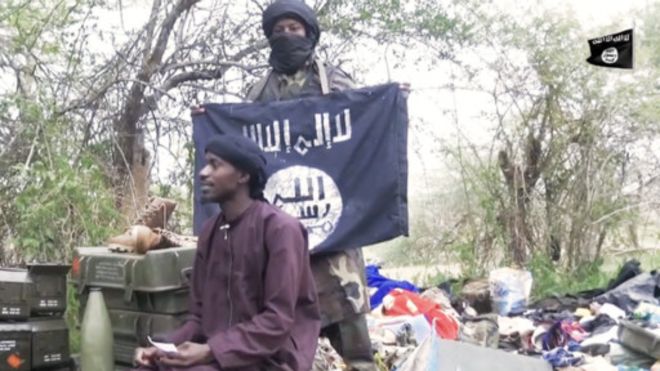
OVER the past eight years, Nigerian soldiers have recorded mixed outcomes in the war against Boko Haram. In all this, the welfare of the troops has been hidden from plain sight. Now, it is hard to turn a blind eye to the stories of distress coming out from the North-East. In an anonymous letter to President Muhammadu Buhari, a soldier laid bare the neglect and non-payment of allowances troops have been enduring on the warfront. As the Commander-in-Chief of the Armed Forces, Buhari has the duty to intervene in this dampener and streamline the operations.
The details of the letter, reportedly by a soldier attached to the ‘Operation Lafiya Dole’, are uncomfortable – for the affected soldiers and their families, the military, the C-in-C and the entire country. There is shortage of weapons to combat the insurgents, and soldiers are not being paid their allowances. A tip by the soldier links this to entrenched sleaze. “Your Excellency, corruption in the Army is real,” the letter, which has gone viral, stated. “While we expect to die in the hands of the enemy, we don’t expect to die in the hands of the Army, due to corruption and criminal negligence.”
This is scandalous. The failure to pay operational allowances is said to have plunged the troops into debt “because our salaries are not enough to sustain us at the battlefield, let alone feeding our families back at home,” states the letter. Among other dispiriting lamentations, the letter stated that “the bodies of slain heroes” lie around without being properly evacuated and buried, while the injured are not receiving adequate medical care. This is a shoddy way to prosecute a war, a sign of dissonance that should not sign-post the operations. Troops who are not being paid have divided loyalty; they are not in the right frame of mind to face adversaries.
In confirmation of the allegations, the Chief of Army Staff, Tukur Buratai, a few days after the letter became public knowledge, said the Ministry of Defence would commence the payment of the outstanding allowances to the troops. He blamed the delay on the non-release of funds by the Ministry of Finance. This belated riposte does not address the issue of probity raised in the letter. Since assuming office in May 2015, the Buhari administration has made provisions to care for the troops on the frontline. In the 2016 and 2017 budgets, the MoD received a vote of almost N900 billion.
Soldiers are usually willing to lay their lives on the line for the cause – and for commanders who possess leadership and man-management skills. It is, therefore, not a surprise that the troops are suffering losses in the war against insurgency. The initial victory run, in which the Army reclaimed the 27 local government areas annexed by Boko Haram, has ebbed. The jihadists are openly overrunning villages, towns and military bases at will again. This is bad for the morale of the troops, who, armed with adequate weapons, logistics and air power, will give Boko Haram a run for its money.
Unfortunately, the current happenings in the North-East evoke a sense of déjà vu. Since 2015, the country has been gripped by the $2.1 billion arms procurement scandal. Several military officers – and their civilian collaborators – are on trial for stealing the funds allocated for acquiring weapons to fight Boko Haram under the erstwhile Goodluck Jonathan administration. This was a time Boko Haram had an upper hand over the Nigerian military.
The allowance imbroglio has dogged the Nigerian military all the way. The Army has been swimming in controversy concerning the dodgy behaviour of commanders in the Boko Haram war. In 2014, soldiers reportedly opened fire on the vehicle of the General Officer Commanding the 7 Division of the Nigerian Army, whom they accused of poor judgement following an ambush that claimed the lives of 12 of their colleagues. In December 2014, 54 soldiers were sentenced to death by a court-martial. They were convicted for refusing to recapture three towns in the North-East seized by Boko Haram that August.
In January 2016, the widows of the soldiers who died in the counter-insurgency war complained to the authorities about the non-payment of the allowances of their deceased spouses. They decried the situation that had forced them to withdraw their children from school because they could not pay fees. They asked the Army to stop sending their husbands to their certain death by not giving them weapons to fight the insurgents. They do have a point.
It is ludicrous to prosecute the war with commanders enfeebled by accusations of graft. The losses will perversely boost the morale of Boko Haram jihadists. For the Army to regain the momentum, the President ought to investigate the true situation about the welfare of these troops. Commanders who are found wanting should be relieved of their duties and troops’ allowances should be paid promptly.
Because of the severity and complexity of modern military injuries, they require immediate access to the highest levels of specialist medical and nursing care, say American military experts, who have observed cases of wounded United States soldiers in Iraq and Afghanistan. That such treatment is lacking in the Boko Haram war is not in doubt. This is inexcusable.
This was partly why 27 soldiers protested in Akure, Ondo State, in 2008. They had sustained injuries in international peacekeeping operations and were taken to Egypt, but received poor medical treatment there. Their allowances were also mismanaged. Claiming that they mutinied, the Army authorities tried and sentenced them to life imprisonment. These brave soldiers risking their lives against Boko Haram deserve the best treatment available, at home or abroad. The first task is to equip the military hospitals nationwide, and make the treatment of injured troops easier and more effective. Such care will not be lost on those deployed to fight.
END

Be the first to comment